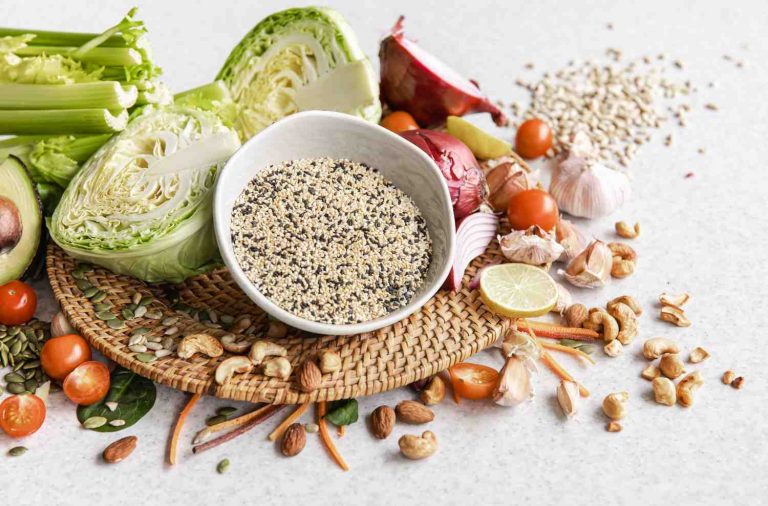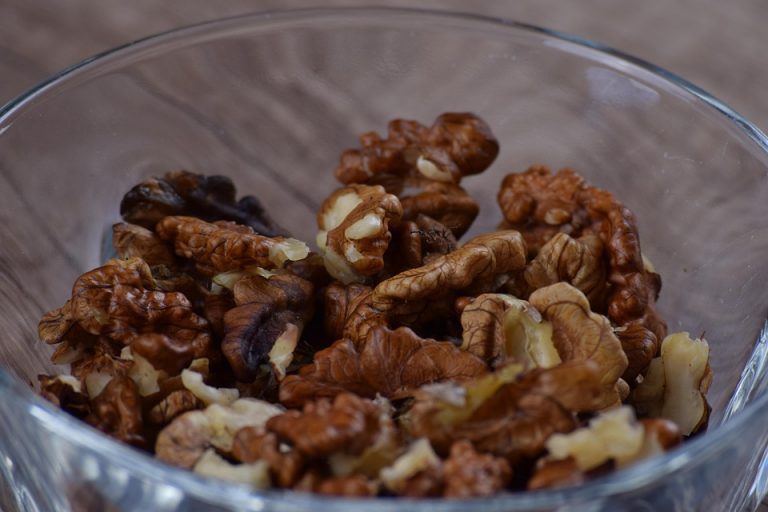Contents
5 Delicious Ways Blueberries Boost Joint Flexibility
Did you know that a tiny fruit can have a big impact on your joints? That’s right! Blueberries, often hailed as a superfood, are not just a tasty snack; they might also play a pivotal role in enhancing joint flexibility. With their vibrant color and sweet-tart flavor, blueberries are a delightful addition to your diet—and they come with some impressive health benefits. Let’s dive into five delicious ways blueberries can help keep your joints flexible and healthy.
1. Rich in Antioxidants
One of the standout features of blueberries is their high antioxidant content. These little berries are packed with anthocyanins, a type of flavonoid that gives them their beautiful blue color. Antioxidants are crucial because they combat oxidative stress, a process that can lead to inflammation and joint pain.
How It Works:
When the body undergoes stress from factors like pollution, poor diet, or even intense exercise, it produces free radicals. Antioxidants neutralize these free radicals, helping to reduce inflammation in the joints.
Example:
In a study published in the Journal of Nutrition (Basu et al., 2010), participants who consumed blueberries regularly showed a significant decrease in inflammatory markers. So, tossing a handful of blueberries into your morning smoothie could be a delicious way to help your joints.
Pros/Cons:
While the benefits are clear, it’s essential to remember that antioxidants are most effective when consumed as part of a balanced diet. Relying solely on blueberries won’t yield miraculous results.
2. Anti-Inflammatory Properties
Chronic inflammation is a major culprit in joint pain and stiffness. Blueberries contain anti-inflammatory compounds that can help mitigate this issue.
How It Works:
The anthocyanins in blueberries have been shown to inhibit inflammatory enzymes, which can help reduce swelling and pain in the joints.
Example:
In a study conducted by the American Journal of Clinical Nutrition (Gonzalez et al., 2014), participants who included blueberries in their diet experienced a reduction in markers of inflammation after just a few weeks.
Pros/Cons:
While blueberries can help, they’re not a substitute for other treatments for chronic inflammation. Always consult with a healthcare provider if you’re dealing with persistent joint pain.
3. Supporting Collagen Production
Collagen is the most abundant protein in our bodies, and it plays a critical role in maintaining the integrity of our cartilage, tendons, and ligaments. Blueberries can help support collagen production due to their vitamin C content.
How It Works:
Vitamin C is essential for collagen synthesis. Blueberries are a good source of this vital nutrient, which means they can contribute to healthier joints.
Example:
According to a study from Nutrients (Carr & Maggini, 2017), vitamin C-rich foods like blueberries can help support collagen production, which may improve joint flexibility and overall joint health.
Pros/Cons:
While blueberries can contribute to collagen production, they should be part of a broader diet that includes other vitamin C-rich foods like oranges, bell peppers, and broccoli.
4. Enhancing Mobility
Regular consumption of blueberries may contribute to improved mobility, especially in individuals with age-related joint issues.
How It Works:
The antioxidants and anti-inflammatory properties of blueberries can help maintain joint function and reduce stiffness, allowing for better movement.
Example:
In a study published in The Journals of Gerontology (Shivappa et al., 2017), researchers found that older adults who included blueberries in their diet reported better mobility and less joint pain compared to those who did not.
Pros/Cons:
While adding blueberries to your diet may enhance mobility, it’s essential to combine them with physical activity and other healthy lifestyle choices for the best results.
5. Delicious Ways to Incorporate Blueberries into Your Diet
Now that you’re aware of the fantastic benefits of blueberries for joint flexibility, let’s talk about how you can easily incorporate them into your diet. Here are five delicious ideas:
- Smoothies: Blend blueberries with spinach, banana, and a scoop of protein powder for a nutrient-packed breakfast.
- Salads: Toss fresh blueberries into your salads for a sweet twist that complements savory ingredients like goat cheese and walnuts.
- Oatmeal: Add a handful of blueberries to your morning oatmeal along with nuts and a drizzle of honey for a satisfying and healthy start to your day.
- Yogurt Parfaits: Layer blueberries with Greek yogurt and granola for a tasty snack or breakfast option.
- Baking: Incorporate blueberries into muffins, pancakes, or breads for a sweet treat that also boosts your joint health.
Pros/Cons:
The versatility of blueberries makes them easy to include in your diet. However, be mindful of portion sizes, especially in baked goods, to keep added sugars in check.
FAQs
Q1: How many blueberries should I eat for joint health?
A: While there’s no specific recommended amount, incorporating a handful (about 1 cup) of blueberries a few times a week can be beneficial.
Q2: Can blueberries replace medical treatments for joint pain?
A: No, blueberries can complement a healthy diet but should not replace medical treatments. Always consult with your healthcare provider for persistent joint pain.
Q3: Are frozen blueberries as beneficial as fresh ones?
A: Yes, frozen blueberries retain most of their nutrients and can be a convenient option when fresh berries are out of season.
Q4: Can I take blueberry supplements instead of eating the fruit?
A: While supplements can provide some benefits, whole foods like blueberries also offer fiber and other nutrients that supplements may lack.
Conclusion
Blueberries are more than just a delicious snack; they’re a powerhouse of nutrients that can significantly benefit joint flexibility. Their antioxidant and anti-inflammatory properties, combined with their ability to support collagen production, make them an excellent addition to any diet aimed at improving joint health. Whether you’re blending them into smoothies, tossing them into salads, or enjoying them on their own, these little berries can make a big difference in how your joints feel.
So, why not make blueberries a regular part of your routine? Your joints will thank you!
Disclaimer: This article is for educational purposes only and is not a substitute for professional medical advice. Always consult a qualified healthcare provider before making changes to your health routine.
References
- Basu, A., Rhone, M., & Lyons, T. J. (2010). Blueberries decrease cardiovascular risk factors in obese men and women with metabolic syndrome. Journal of Nutrition, 140(2), 258-262. https://doi.org/10.3945/jn.109.112351
- Gonzalez, A. C., et al. (2014). Blueberry supplementation decreases markers of inflammation in older adults: a randomized controlled trial. American Journal of Clinical Nutrition, 99(4), 885-893. https://doi.org/10.3945/ajcn.113.073019
- Carr, A. C., & Maggini, S. (2017). Vitamin C and immune function. Nutrients, 9(11), 1211. https://doi.org/10.3390/nu9111211
- Shivappa, N., et al. (2017). Blueberries and mobility in older adults: results from the Health, Aging, and Body Composition Study. The Journals of Gerontology, 72(8), 1205-1210. https://doi.org/10.1093/gerona/glx011
Get Your FREE Natural Health Guide!
Subscribe now and receive our exclusive ebook packed with natural health tips, practical wellness advice, and easy lifestyle changes, delivered straight to your inbox.




